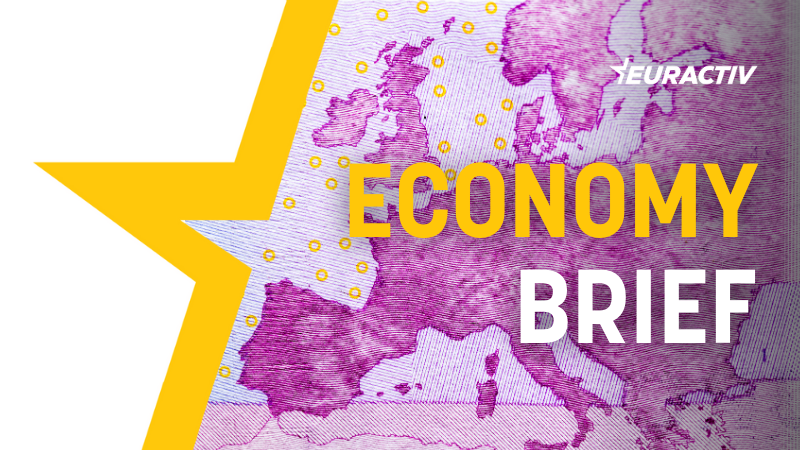Multinationals who want access to French public investments must remain in the country for a minimum of ten years after receiving the funds, according to an amendment to the 2024 budget bill.
It is also hoped that the amendment will allow the country and its business environment to seriously face competition from the US and China.
The amendment, the existence of which was first revealed by French news outlet Contexte, will add social conditionality criteria to any company wanting to benefit from ‘France 2030’ money, a €54-billion national investment plan geared towards reindustrialisation and the growth of new cutting-edge technologies.
‘France 2030’, first introduced in 2021 at the start of the pandemic to grant subsidies to enhance the development of Small Modular Reactors (SMR), and green hydrogen, and to support the production of two million electric vehicles by 2027, among other objectives.

'We have a real problem': European industry fears decline
The EU has fallen behind the US and China in terms of economic growth and innovation, the European Round Table for Industry (ERT) warns in its latest paper, calling for a deeper integration of the EU’s single market, a capital markets union, and better incentives to invest in Europe.
“At least 10 years”
Part of the 2024 budget bill, the details of which are currently being hashed out by MPs in the National Assembly’s Finance Committee, looks to confirm and enshrine ‘France 2030’s’ value – and far-left La France Insoumise (LFI) MP Laurent Alexandre stepped in to bring forth new social conditionality measures.
His amendment, adopted by surprise despite the government’s opposition, will require large companies to “maintain their [economic] activities on [French] territory for at least 10 years after receiving the funds”. Firms must also keep their workforce at either the same level or higher than when they first received public money.
Furthermore, a joint industrial strategy must be drawn up between each business and the government to spread industrial developments across poorer, more heavily deindustrialised French regions. Firms failing to follow these rules would be asked to pay back the total subsidy amounts.
“Too many French industries have moved production to other EU countries – out of sheer accounting and economic logic, but with no clear reindustrialisation plan in mind,” Alexandre told Euractiv.
“It’s a scandal – and it’s time companies start being accountable for the public money that is being spent on them,” he added, calling on the government to “stop the haemorrhage”.

Failing to counter foreign competition
In a parliamentary report published in October ahead of budget negotiations, Laurent Alexandre warned that government’s hopes that “unlocking innovation” is enough to support reindustrialisation is just wrong.
Instead, he wrote, new “green and social conditions to accessing funds” are necessary.
The report uses the automobile sector as an example of moral hazard once public money has been granted: while ‘France 2030’ is geared towards supporting the growth of the electric car batteries, “carmakers then move their activities in foreign countries. [This is the case for] aluminium foundries that are necessary to electric vehicle production”.
This can be explained by the “competition deficit” between French car producers and their Asian counterparts, with Chinese carmakers facing production costs 20% to 25% lower than French-American mogul Stellantis’.
Ultimately, France’s large investment plan fails to effectively counter foreign competition from the US – through its $400-billion Inflation Reduction Act (IRA) – and China. Both superpowers “implement protectionist measures [atop investment plans] which offers growth opportunities to their own domestic business,” the report concludes.
Thus, the far-left MP argues, it’s time we make businesses accountable. “let’s get some protectionism ‘à la française’,” he said.

Sure, more competitiveness! But how?
Welcome to EURACTIV’s weekly Economy Brief. You can subscribe to the newsletter here.
If her State of the Union speech is anything to go by, the competitiveness of European industry is Commission President Ursula von der Leyen’s main …
Lukewarm EU
Such move echoes existing debates in EU circles over the best response to unfair international competition while supporting the growth of an impactful green industry sector.
In January 2023, the European Commission notably announced the relaxation of state aid rules to enable higher investments in the green transition.
But so far, this has mostly raised risks of market fragmentation, with half of all Commission-approved state aid going to one single country, Germany.
Meanwhile, the Commission put together a new funding tool for critical technologies, ‘STEP’, seen by many as unambitious and a far cry from a proper EU Sovereignty Fund.
Plus, the very principle of social conditionality in industrial policy, at the heart of the IRA, is still receiving lukewarm attention in the EU, whose view is that this could hamper fair competition and may not fit within World Trade Organisation (WTO) requirements.
It has been included in the EU’s agricultural policy 2021-2027 (CAP) however, which linked payments to the respect of certain EU labour standards to improve working conditions on farms.
Though adopted through a Committee vote, the amendment will be voted on during plenary next week. The government has already announced that it would reject it and threatens to have the whole budget text adopted without a vote through a special Constitutional provision.

ANALYSIS: EU subsidy race is on – and Germany is winning it
Germany is the number-one beneficiary of the relaxation of state aid rules, having received almost half of the total state aid approved since February 2022, according to fresh data from the European Commission – deepening concerns over market fragmentation.
[Edited by János Allenbach-Ammann/Alice Taylor]
Read more with EURACTIV








.png)
 1 year ago
66
1 year ago
66



 English (US)
English (US)